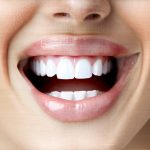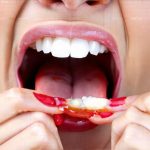Digestion is often taken for granted, a largely automatic process happening behind the scenes while we focus on life. But it’s a surprisingly complex system, reliant on multiple stages working in harmony. The initial stage – mechanical digestion within the mouth – is where food breakdown truly begins. We don’t just swallow food; we prepare it for optimal absorption by breaking it down into smaller particles through chewing. When this crucial first step is compromised, the consequences can ripple throughout the digestive tract, manifesting in a variety of uncomfortable symptoms, and frequently resulting in soft or loose stools. The connection between inadequate chewing and stool consistency isn’t always immediately obvious, but understanding the underlying mechanisms reveals why properly masticated food is so vital to overall gut health and regular bowel movements.
This article will explore the link between failing to adequately chew your food and the subsequent development of soft stools. We’ll delve into the digestive processes affected, explain how malabsorption plays a role, and offer insights into strategies for improving chewing habits and supporting healthier digestion. It’s important to remember that these are general explanations; individual experiences can vary, and persistent or severe issues should always be discussed with a healthcare professional. The goal here is to provide information and empower readers to understand their bodies better and make informed choices regarding their dietary habits and digestive well-being.
The Digestive Cascade & Chewing’s Role
Chewing isn’t merely about making food smaller; it’s the start of enzymatic digestion. Saliva, released during chewing, contains amylase, an enzyme that begins breaking down carbohydrates. This initial breakdown is critical because it reduces the workload on the stomach and small intestine. Furthermore, thorough chewing increases the surface area of food particles, allowing for greater exposure to digestive enzymes throughout the entire gastrointestinal tract. When food arrives in the stomach as large, poorly-chewed boluses, digestion becomes less efficient. The stomach has to work harder to break down these larger pieces, potentially leading to incomplete digestion and fermentation – a process where bacteria act upon undigested food, producing gas and discomfort.
The impact extends beyond the stomach. Undigested or partially digested food reaches the small intestine, where most nutrient absorption occurs. If the food isn’t broken down sufficiently, the body struggles to extract vital vitamins, minerals, and macronutrients. This malabsorption is a key link between poor chewing habits and soft stools. The large intestine then receives more undigested material, leading to increased fermentation and potentially drawing water into the colon – resulting in looser stool consistency. Think of it like trying to dissolve sugar in cold water versus warm water; the warmer (more broken down) the substance, the easier it dissolves (is absorbed).
Finally, a less obvious effect is the stimulation of vagus nerve activity through chewing. This nerve plays a crucial role in the “rest and digest” response, promoting healthy digestion and reducing stress. Faster eating, often associated with inadequate chewing, bypasses this important neurological feedback loop, potentially leading to impaired digestive function over time. Essentially, proper chewing sets off a chain reaction that optimizes every stage of digestion, from initial breakdown to nutrient absorption and elimination. If you are experiencing persistent issues after dietary changes, it may be helpful to explore diagnostics that explain weird reactions to healthy food.
Malabsorption & Stool Softening
Malabsorption isn’t always dramatic; it often presents subtly at first. The symptoms can range from bloating and gas to fatigue and deficiencies in essential nutrients. However, one of the most common early signs is a change in stool consistency – specifically, stools becoming softer or looser than usual. This happens because undigested fats, carbohydrates, and proteins draw water into the colon via osmosis. Fats are particularly problematic; they aren’t easily absorbed without proper emulsification (aided by chewing and bile salts), and their presence in the large intestine contributes significantly to stool softening.
The type of food also matters considerably. Complex carbohydrates – like those found in whole grains, vegetables, and legumes – require more thorough chewing than processed foods. If these aren’t adequately broken down, they can reach the colon largely intact, providing a feast for gut bacteria and leading to increased gas production and soft stools. Similarly, fibrous foods are beneficial but need sufficient breakdown to be properly digested; otherwise, they can contribute to bulk and potentially overwhelm the digestive system.
It’s also worth noting that individual tolerance levels vary greatly. Some people have more resilient digestive systems than others and may be able to tolerate some degree of malabsorption without experiencing noticeable symptoms. However, chronic inadequate chewing will eventually strain even the most robust digestive systems. Long-term malabsorption can lead to nutrient deficiencies which further weaken the body’s ability to function optimally, creating a vicious cycle. It’s important to understand how to check if your gut is absorbing nutrients properly.
Strategies for Improved Chewing Habits
Improving your chewing habits is surprisingly achievable with conscious effort. It’s not about drastically changing your diet; it’s about modifying how you eat.
– Slow Down: This is arguably the most important step. Eating slowly forces you to chew more thoroughly and gives your digestive system time to catch up. Aim for at least 20-30 chews per bite, especially with denser foods like nuts or vegetables.
– Minimize Distractions: Turn off the TV, put away your phone, and focus on your meal. Distractions lead to mindless eating and rushed chewing.
– Smaller Bites: Reducing the size of each bite makes it easier to chew thoroughly.
Consider incorporating mindful eating practices into your routine. Before you begin eating, take a few deep breaths and observe your food. Notice its color, texture, and aroma. This practice helps create a more intentional connection with your meal and encourages slower, more deliberate chewing. Furthermore, pay attention to the signals your body sends; stop eating when you feel satisfied, not stuffed. If you’ve recently experienced a disruption like excessive junk food intake, consider how to reset the gut afterwards.
Identifying Underlying Causes Beyond Chewing
While inadequate chewing is often a significant factor, it’s crucial to recognize that soft stools can have other underlying causes. Food intolerances or allergies (like lactose intolerance or gluten sensitivity) can cause inflammation and malabsorption. Similarly, certain medical conditions – such as irritable bowel syndrome (IBS), Crohn’s disease, or celiac disease – can significantly impact stool consistency. If you’ve consistently struggled with soft stools despite improving your chewing habits, it’s essential to consult a healthcare professional for proper diagnosis and treatment.
Don’t self-diagnose! A doctor can rule out other potential causes through testing and provide personalized recommendations. It is also important to evaluate your overall diet; ensure you’re consuming adequate fiber (from well-chewed sources, of course!) and staying hydrated. Finally, consider stress levels – chronic stress can disrupt digestive function and contribute to soft stools. Managing stress through techniques like yoga, meditation, or deep breathing exercises can be beneficial. If you are concerned about your overall digestive health, reviewing checkpoints to review after a scare is always worthwhile.
The Role of Gut Microbiome & Long-Term Support
The gut microbiome—the trillions of bacteria residing in your digestive tract—plays a vital role in digestion and overall health. Chewing habits directly impact the gut microbiome. When food is poorly chewed, more undigested material reaches the colon, providing fuel for less desirable bacteria. This imbalance can lead to increased gas production, bloating, and soft stools. Conversely, thorough chewing promotes a healthier balance of gut bacteria by providing prebiotics (food for beneficial bacteria) in a form they can readily utilize.
Supporting your gut microbiome is essential for long-term digestive health. This includes consuming probiotic-rich foods (like yogurt, kefir, or sauerkraut), incorporating prebiotic fibers into your diet (from sources like onions, garlic, and bananas – well chewed!), and avoiding excessive antibiotic use. A healthy gut microbiome enhances nutrient absorption, reduces inflammation, and strengthens the intestinal barrier—the protective lining of your digestive tract.
Ultimately, achieving consistent stool regularity isn’t just about chewing; it’s about a holistic approach to digestive health that incorporates mindful eating habits, a balanced diet, stress management, and support for a thriving gut microbiome. Remember that small changes can yield significant results over time, leading to improved digestion, enhanced nutrient absorption, and a greater sense of well-being. If you’ve experienced a recent food sensitivity flare up, remember what to do after. And if antibiotic use has caused issues, consider what to test after symptoms.


















